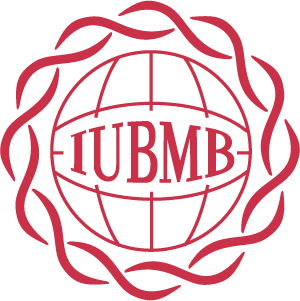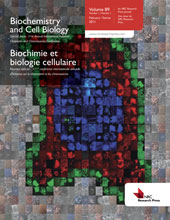
Biochemists are scientists who are trained in biochemistry. They study chemical processes and chemical transformations in living organisms. Biochemists study DNA, proteins and cell parts. The word "biochemist" is a portmanteau of "biological chemist."
The Institute of Biosciences and Technology (IBT), a component of the Texas A&M Health Science Center represents the Texas A&M University System, one of the two main Texas state university systems, in the state's and world's largest medical center, the Texas Medical Center, in Houston, Texas. The institute provides a bridge between Texas A&M University System scientists and other institutions' researchers working in the Texas Medical Center and the biomedical and biotechnology research community in Houston. It emphasizes collaboration between member scientists and others working in all the fields of the biosciences and biotechnology. IBT encourages its scientists to transfer discoveries made in their laboratories to the clinic and marketplace.

John Shine is an Australian biochemist and molecular biologist. Shine and Lynn Dalgarno discovered the nucleotide sequence, called the Shine-Dalgarno sequence, necessary for the initiation and termination of protein synthesis. He directed the Garvan Institute of Medical Research in Sydney from 1990 to 2011. In May 2018 Shine was elected President of the Australian Academy of Science.

The Bio21 Institute of Molecular Science and Biotechnology, abbreviated as the Bio21 Institute, is an Australian scientific research institute that focuses on basic science and applied biotechnology. The Bio21 Institute is based at the University of Melbourne on Flemington Road in Parkville, Melbourne, Victoria.

The International Union of Biochemistry and Molecular Biology (IUBMB) is an international non-governmental organisation concerned with biochemistry and molecular biology. Formed in 1955 as the International Union of Biochemistry (IUB), the union has presently 79 member countries and regions. The Union is devoted to promoting research and education in biochemistry and molecular biology throughout the world and gives particular attention to areas where the subject is still in its early development
The International Max Planck Research School for Molecular Life Sciences is a German centre for postgraduate training and research in life sciences. It is one among over 60 International Max Planck Research Schools in Germany. It is located in Munich and was established in 2005. The Ph.D. program is organised by three of the Max Planck Institutes and two universities in Munich.

The University of Veterinary and Animal Sciences, originally known as Lahore Veterinary College, is a public university located in Lahore, Punjab, Pakistan. It is accredited by the Pakistan Veterinary Medical Council (PVMC). It has additional teaching campuses in rural areas of the Punjab, Pattoki and Jhang.
The Max Planck Institute of Molecular Plant Physiology is a German research institute for molecular plant physiology, based in the Golm district of Potsdam, Brandenburg. Founded on 1 January 1994, the MPIMP focuses on the study of the dynamics of plant metabolism and how that relates to the entire plant system. The institution is one of the 80 institutes in the Max Planck Society (Max-Planck-Gesellschaft).

Francisco Gonzalo Bolívar Zapata is a Mexican biochemist and professor.

Joachim Wilhelm "Jo" Messing was a German-American biologist who was a professor of molecular biology and the fourth director of the Waksman Institute of Microbiology at Rutgers University.
Thomas Dean Pollard is a prominent educator, cell biologist and biophysicist whose research focuses on understanding cell motility through the study of actin filaments and myosin motors. He is Sterling Professor of Molecular, Cellular & Developmental Biology and a Professor of Cell Biology and Molecular Biophysics & Biochemistry at Yale University. He was Dean of Yale's Graduate School of Arts and Sciences from 2010 to 2014, and President of the Salk Institute for Biological Studies from 1996 to 2001.

Archives of Biochemistry and Biophysics is a biweekly peer-reviewed scientific journal that covers research on all aspects of biochemistry and biophysics. It is published by Elsevier and as of 2012, the editors-in-chief are Paul Fitzpatrick, Helmut Sies, Jian-Ping Jin, and Henry Jay Forman.

Biochemistry and Cell Biology is a bi-monthly, peer-reviewed scientific journal of biochemistry and cell biology established in 1964 by NRC Research Press. It is the continuation of Canadian Journal of Biochemistry and Physiology which split into Canadian Journal of Biochemistry and Canadian Journal of Physiology and Pharmacology in 1964. In 1983, Canadian Journal of Biochemistry was renamed Canadian Journal of Biochemistry and Cell Biology and acquired its current name Biochemistry and Cell Biology in 1986.

Manchanahalli Rangaswamy Satyanarayana Rao known by the abbreviation M. R. S. Rao, is an Indian scientist. He has been awarded the fourth highest civilian award Padma Shri in Science and Engineering category by the Government of India. He was the President of Jawaharlal Nehru Centre for Advanced Scientific Research (JNCASR) in Bangalore, India (2003-2013).
The College of Science and Engineering is one of the three colleges of the University of Edinburgh. With over 2,000 staff and around 9,000 students, it is one of the largest science and engineering groupings in the UK. The college is largely located at the King's Buildings campus and consists of the separate schools of:
Kalappa Muniyappa is an Indian molecular biologist and geneticist, known for his researches on the chromatization of DNA and gene targeting. He is a professor and chairman of the department of biochemistry of the Indian Institute of Science and an elected fellow of the Indian National Science Academy, Indian Academy of Sciences and the National Academy of Sciences, India. The Council of Scientific and Industrial Research, the apex agency of the Government of India for scientific research, awarded him the Shanti Swarup Bhatnagar Prize for Science and Technology, one of the highest Indian science awards, in 1995, for his contributions to biological sciences.
Balasubramanian Gopal is an Indian structural biologist, molecular biophysicist and a professor at the Molecular Biophysics Unit of the Indian Institute of Science. He is known for his studies on cell wall synthesis in Staphylococcus aureus and is an elected fellow of the National Academy of Sciences, India, Indian National Science Academy and the Indian Academy of Sciences. He received the National Bioscience Award for Career Development of the Department of Biotechnology in 2010. The Council of Scientific and Industrial Research, the apex agency of the Government of India for scientific research, awarded him the Shanti Swarup Bhatnagar Prize for Science and Technology, one of the highest Indian science awards, in 2015, for his contributions to biological sciences.
Liu Xinyuan, or Xin-Yuan Liu, is a Chinese molecular biologist. He is a professor of the Shanghai Institute of Biochemistry and Cell Biology and the founding director of the Xinyuan Institute of Medicine and Biotechnology at Zhejiang Sci-Tech University. His research is focussed on cancer, super interferon therapy, and gene therapy. He is an academician of the Chinese Academy of Sciences, the National Academy of Sciences of Ukraine, and The World Academy of Sciences. He has won more than 30 awards including the Ho Leung Ho Lee Prize.
Nagima Abenovna Aitkhozhina was a Kazakh biologist who specialised in the field of molecular biology. She was engaged in the study of the structural and functional organisation of the genome of higher organisms and the molecular mechanisms of regulation of its expression. Aitkhozhina was the founder and served as general director of the Institute of Molecular Biology and Biochemistry named after M.A. Aitkhozhina of the National Academy of Sciences of the Republic of Kazakhstan from 1990 to 2018, Kazakhstan's first genome laboratory. Between 1999 and 2002, she was president of the Kazakhstan Academy of Sciences. Aitkhozhina was an elected deputy of the Congress of People's Deputies of the Soviet Union from the Committee of Soviet Women from 1989 to 1991. She was decorated with the Order of Parasat in December 2001 and the Order of the Leopard, Third Class ten years later.









